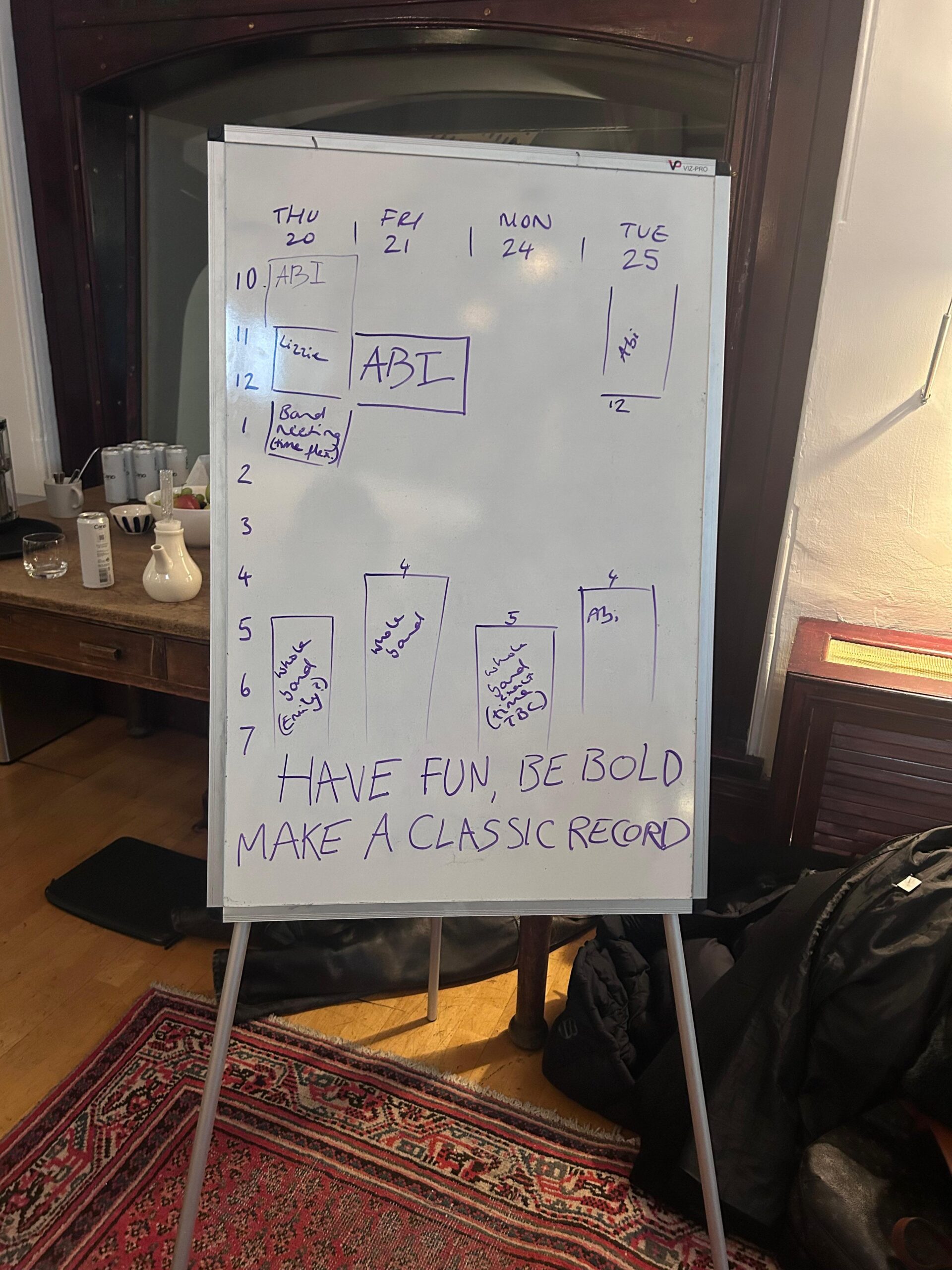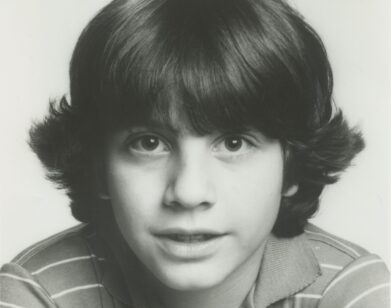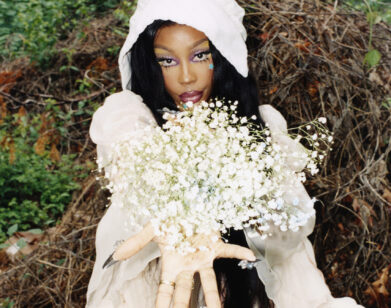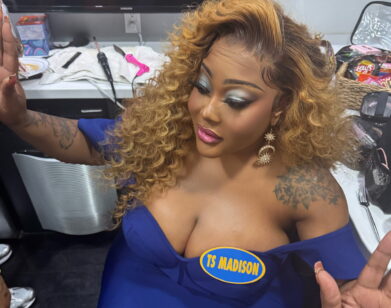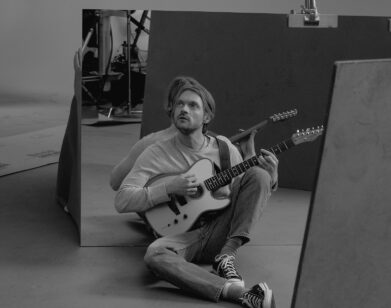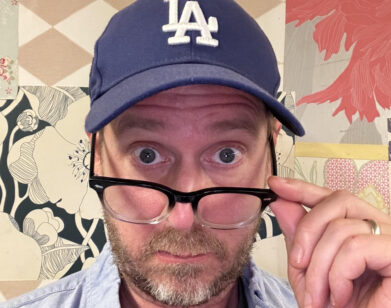IN CONVERSATION
Abigail Morris Tells Ellie Rowsell How Lady Gaga Changed Her Life
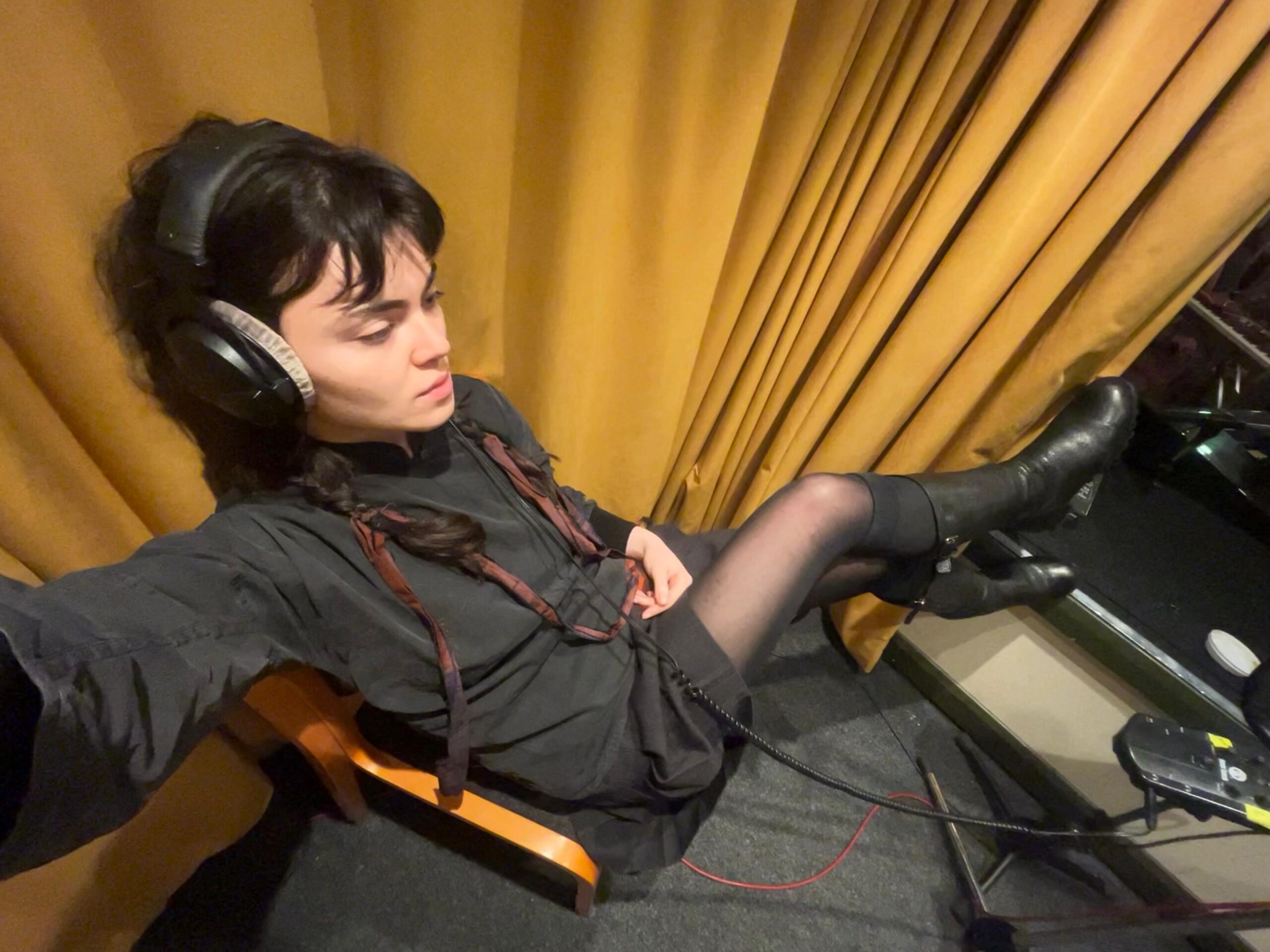
All photos courtesy of Abigail Morris.
Abigail Morris isn’t interested in putting on a persona. With The Last Dinner Party, the British rock band she’s fronted since 2021, what you see is what you get. And what you get is elaborate costumes, romantic rock anthems, and a group of performers, including Lizzie Mayland, Emily Roberts, Georgia Davies, and Aurora Nishevci, who aren’t too preoccupied with appearances. After meeting during Freshers Week at King’s College London, the now Brit Award-winning group have been on a meteoric rise. Following their critically-acclaimed debut record, Prelude to Ecstacy, the band is cementing itself as a force to be reckoned with on their sophomore album, From The Pyre, replete with complex, Baroque harmonies and punchy lyricism. This time around, Morris tells Ellie Rowsell of Wolf Alice, the writing sprung from “a more confident, excited place.” Just after the album’s release, the two frontwomen got on a call to talk about reading reviews, theater kid energy, and going “Sgt. Pepper” mode.
———
ELLIE ROWSELL: I’ve just had quite an intense, intrusive facial—
ABIGAIL MORRIS: I can’t see because you’re kind of… you’re backlit.
ROWSELL: That was the plan. [Laughs] Anyway, how are you? Are you on tour?
MORRIS: I’m in Liverpool. I’m in my hotel, and we’ve just been signing records.
ROWSELL: Are you playing record stores, or what is it?
MORRIS: Yeah. How about you?
ROWSELL: I’m in London at home. I’ve got a week off, so that’s nice. I’ve listened to your album a lot now in preparation for this.
MORRIS: Thank you.
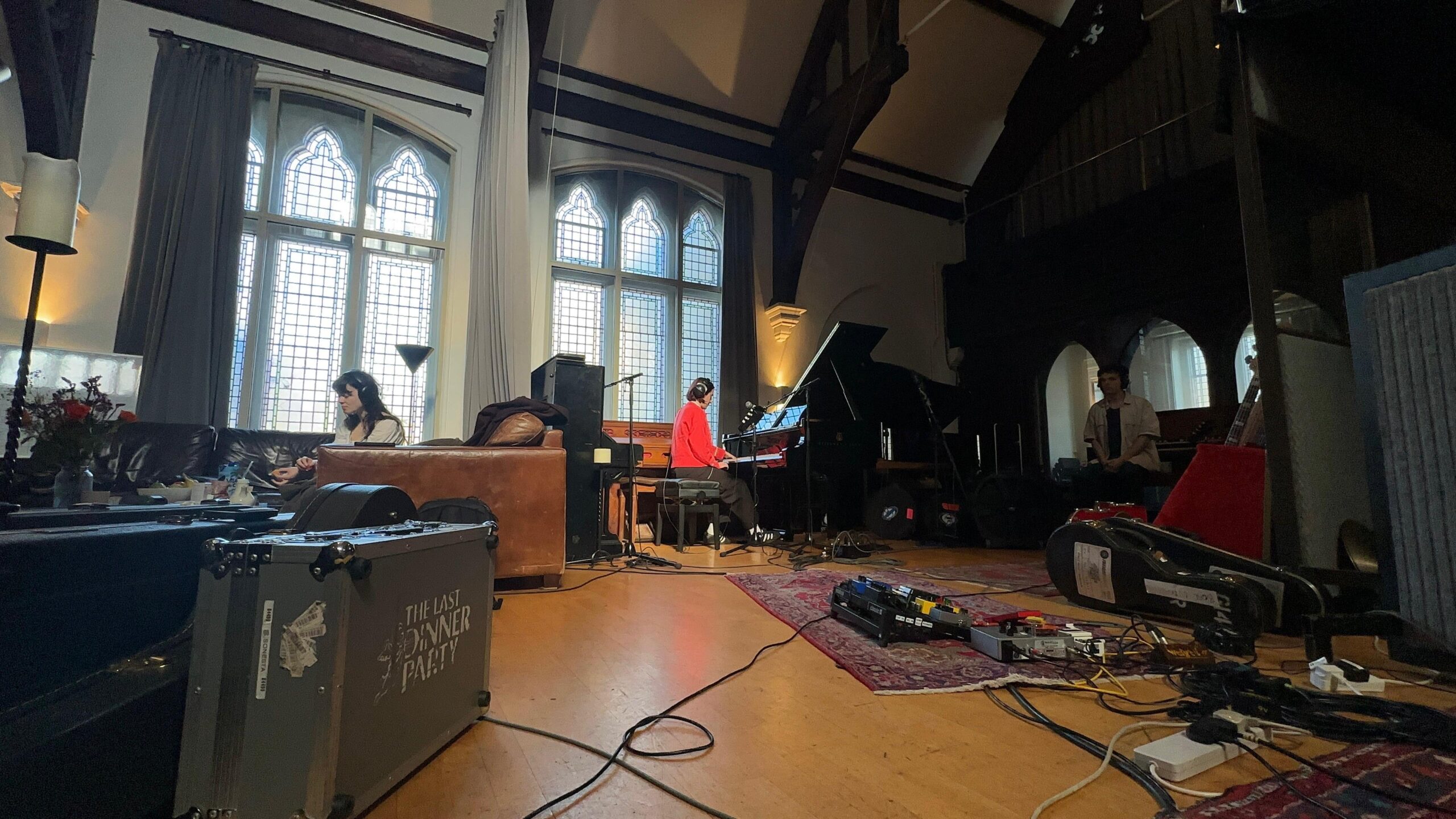
ROWSELL: It’s really good. I was quite wowed.
MORRIS: Thank you. I mean, I love yours as well. This is so sick that we can do this. We’ve met like twice in real life?
ROWSELL: Yes, briefly. Well, I came to your show in Los Angeles, and we met briefly then. How are you feeling about everything? Are we a week in?
MORRIS: It’s going to be a week, tomorrow. I feel really good. I feel really different than I did on the first record. I think when the first record came out, it was predominantly dread and kind of a nightmare time. And I don’t know if you’ve had this too, but you put it out and then everything gets sucked into this strange void of panic. But this one feels really fun, and nice, which is really cool. It’s nice to be excited about.
ROWSELL: Why do you think it feels so different?
MORRIS: Well, I think going into writing, we were coming from a more confident, excited place, rather than when we did the first record. And this record felt really challenging, but also very joyful to make. So I feel like now putting it out, we’ve retained that.
ROWSELL: When the process is good, everything kind of feels secondary to that, because you’ve already had a good time, so you’ve no regrets.
MORRIS: Yeah. Did you find that with yours?
ROWSELL: This one was hard, actually. It took a really long time, and for a number of reasons it was quite difficult. Once we got going, it was great, but it took a while to get off the ground. You know, the aim for me is to get it to a place where I like it. That’s the goal, isn’t it? And once you get to that place, nothing can hurt you too much because you could do nothing else. Because that’s what you went for.
MORRIS: Exactly. I found it funny because I read your press release in preparation for talking to you. And I thought it was so funny that you also kind of went Beatles mode for your record, and I think we did as well. We were in like, Sgt. Pepper’s [Lonely Hearts Club Band] zone. That makes sense when I listen to your record. You must get this all the time, but just that kind of timeless, bandy, in-the-room feeling. Which was really, really fucking cool.
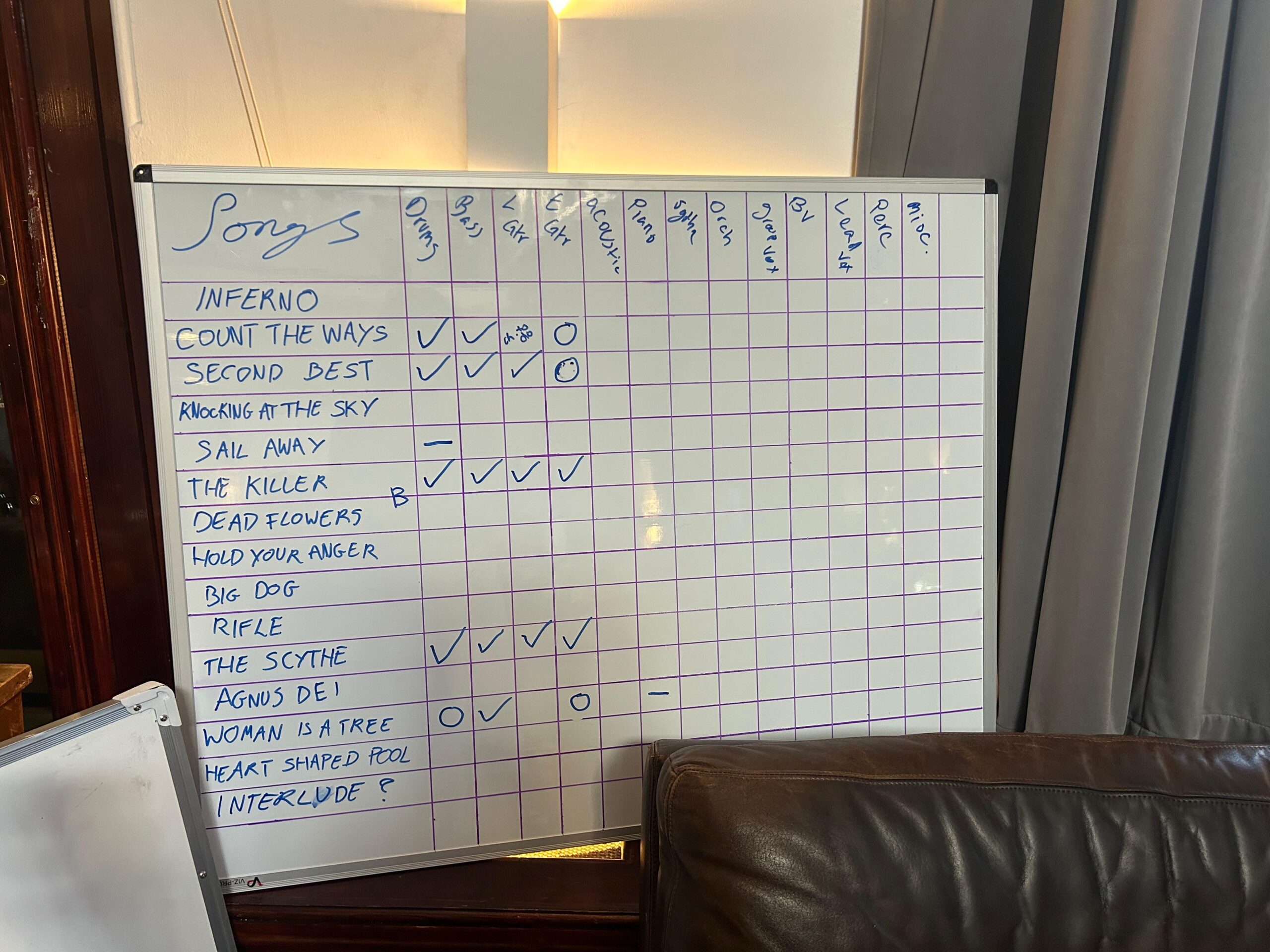
ROWSELL: It’s weird because that was a goal of ours, to feel like you can hear the band. But lots of people don’t think that that’s what it sounds like. It’s really interesting to see how what you were going for has been picked up on, or not picked up on. Are you reading what people are saying about your work?
MORRIS: We literally had a conversation about this yesterday, and we’ve just agreed that we don’t like music journalism because it’s so subjective. It’s so kind of impossible to read a review about yourself and feel moved by it. I never have. Even when I read really positive reviews, I feel a strange numbness. You read bad reviews, and you read good reviews, and they all somehow feel painful in a way.
ROWSELL: No, it’s a tough one, isn’t it? Because I love seeing people’s interpretations of things. I love how romantic fan culture is in a way, when they pick up on signs. But I’ve found it quite hard this time around. I imagine maybe going forward I won’t ever do it again. I think the internet is just getting a bit out of control, isn’t it?
MORRIS: Yeah. I’m totally pissed with it.
ROWSELL: I love hearing what songs are people’s favorites of mine. I don’t know if you care about knowing that too, but I want to tell you what my favorites are of yours.
MORRIS: Tell me.
ROWSELL: I absolutely love “Count the Ways.” A lot of the songs sound so classic, but they’re fresh. That’s the dream, isn’t it? To make something that can be both. And that one really stood out to me. The first one, “Agnus Dei,” I was quite wowed. Those first two songs, I was like, “Fuck.” There’s so much going on in this album, lots of dense vocals. I was like, “Fuck, that must be hard.” Like, going into your rehearsal process, you’re like, “Uh-oh.” But then I was like, “Nah,” because I remembered that you’re all singing.
MORRIS: Yeah, I feel like we all just wanted to rise to the challenge of it because Lizzy did most of the vocal arrangements for this album.
ROWSELL: Oh, really?
MORRIS: And they have a tendency to take the song and be like, “Okay, I’m going to do some BVs, and add some of that,” and we’ll go, “Okay, thanks. Cool.” And then they’ll come back in and they’ll be like, “Okay, so there’s eight different harmonies,” and then they’ll break them down and we’ll just all be there, in shock. So many parts of this record came from us wanting to have a challenge and step out of our comfort zone and not have any limitations when we thought about playing the songs live.
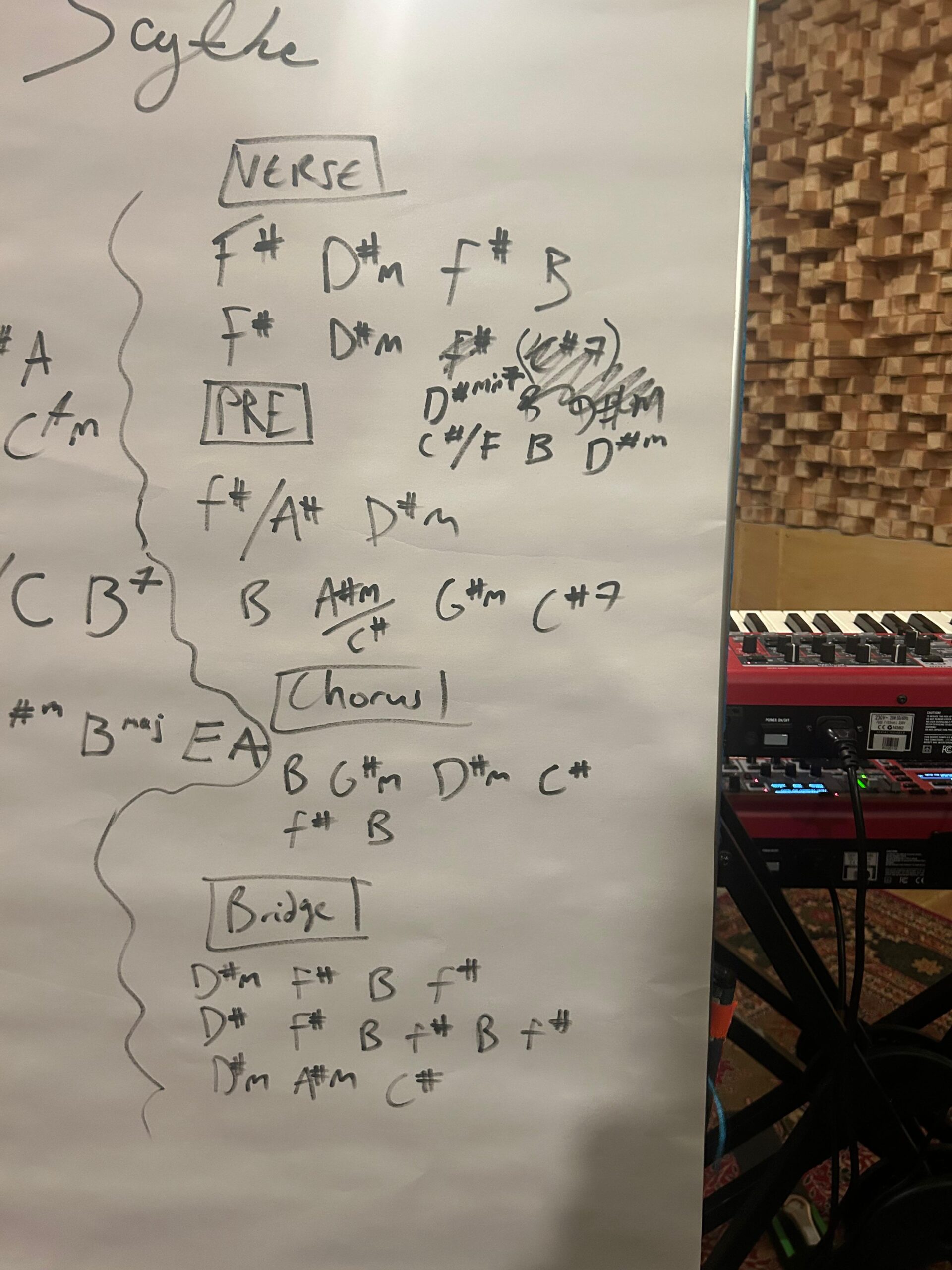
ROWSELL: So when you’re doing it, you don’t want to hold anything back.
MORRIS: Yeah. So we just managed to distill the harmonies into five parts for every song. There’s something really special about being able to make that sound on your own, with just five bodies, without instruments. It’s very primal to be able to just do that.
ROWSELL: Yeah, I find what moves me almost physically is when I’m singing in a group or watching a group sing. I find it almost quite hard. Whenever we’ve had the privilege of doing an arrangement with a choir or something, I just can’t because it just really moves me. So you must get that a lot, with your band on stage.
MORRIS: Yeah.
ROWSELL: It seems that it’s not just music that inspires your writing, right? Do you compartmentalize what is inspiration for The Last Dinner Party, and what is just inspiring for you, as Abigail? Is it one and the same?
MORRIS: At the moment, it’s all for the band. Because I’ve sometimes thought, “Oh, what would it be like if I did a solo project?” But I literally can’t imagine it at this point. It’s all deeply parceled and deeply channeled straight into this. There’s no separation, really.
ROWSELL: So when you go on stage, that’s you. Is there a stage version of you, or do you feel like that’s just the real you?
MORRIS: We’ve always been like that. When we started, I feel like we made a decision not to be characters and not to have a persona. I don’t remember why. I think it just feels like a natural extension. I don’t know if you feel similar when you perform, or if you feel like there’s a persona.
ROWSELL: I think I used to just be like, “Everything was one and the same.” I was like, “If I like something, then it will go into Wolf Alice. When I go on stage, it’s just me on stage.” And actually recently I’ve been like, “I need to protect myself a bit, and I need to have a version of myself that is very similar to me, but is Stage Ellie or Alice Ellie.” But the line is pretty blurred.
MORRIS: Oh, really? It’s quite homogenous for me.
ROWSELL: What’s your favorite song on the album, at the moment?
MORRIS: “Inferno” has always been my favorite.
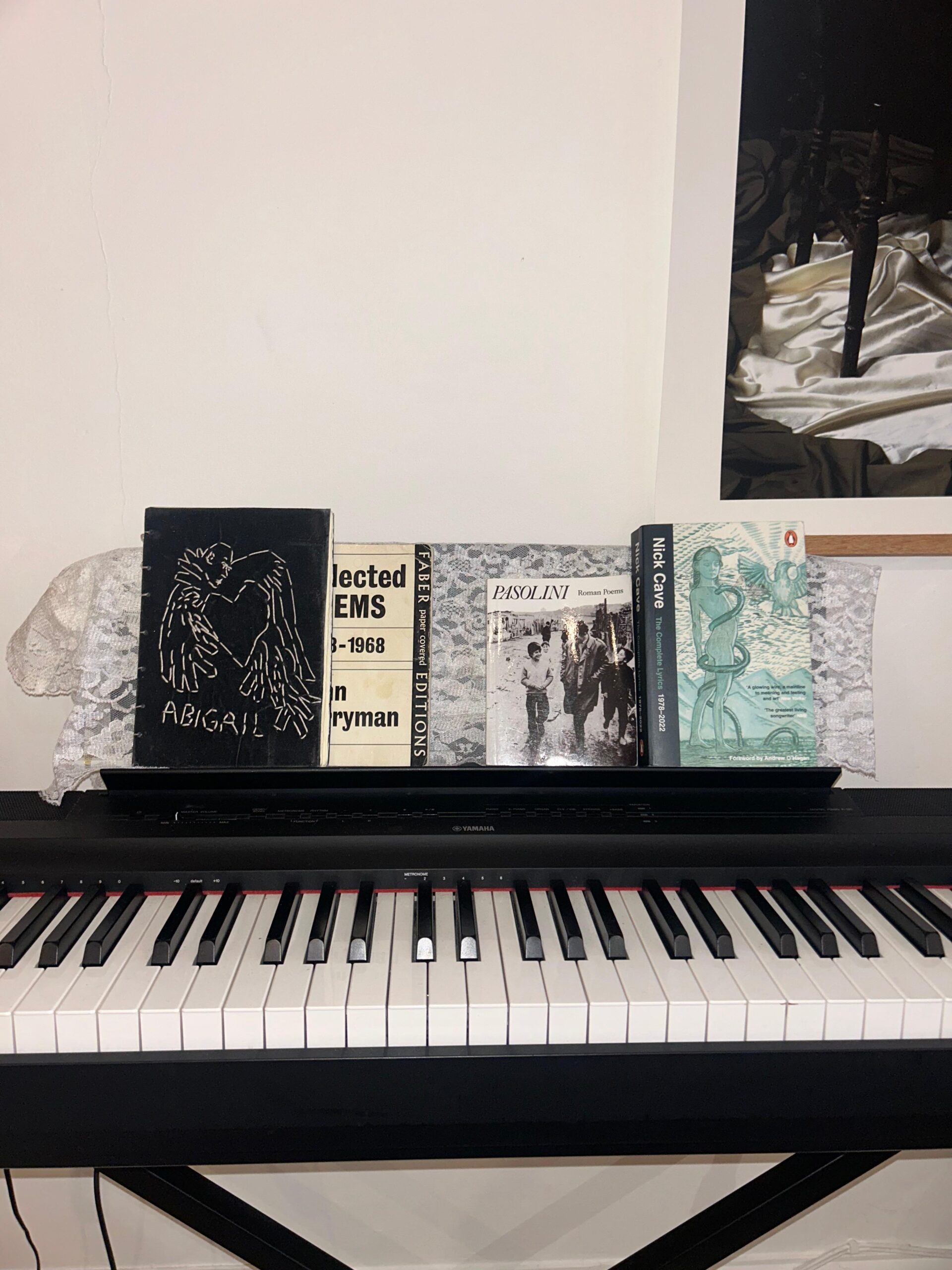
ROWSELL: Oh, really?
MORRIS: Yeah, it’s the most recent one that I wrote for that record. I wrote it over Christmas, in between tours, right when everything was going nuclear, and we were really getting a lot of attention. And I really only have a tendency to write about my relationships, and just heartbreak. I find that to be the easiest thing to draw inspiration from. But that was the first time I’ve written a song that wasn’t about a person, it was about me and my relationship to the band and to whatever level of fame we’d had. I really love that song. It feels like the kind of music I want to be writing at the moment.
ROWSELL: Have you written any music since these songs? Is that way too soon, or you’re always tinkering away?
MORRIS: I suffer really intensely from writer’s block and I won’t write for years. But recently, I’ve just started writing again, and I really want to just start doing album three now. But I don’t know, because I’m always so interested to hear about other singer-songwriters’ writer’s block, because I feel like everyone has different ways that they deal with it. Some people don’t believe in it. Do you suffer?
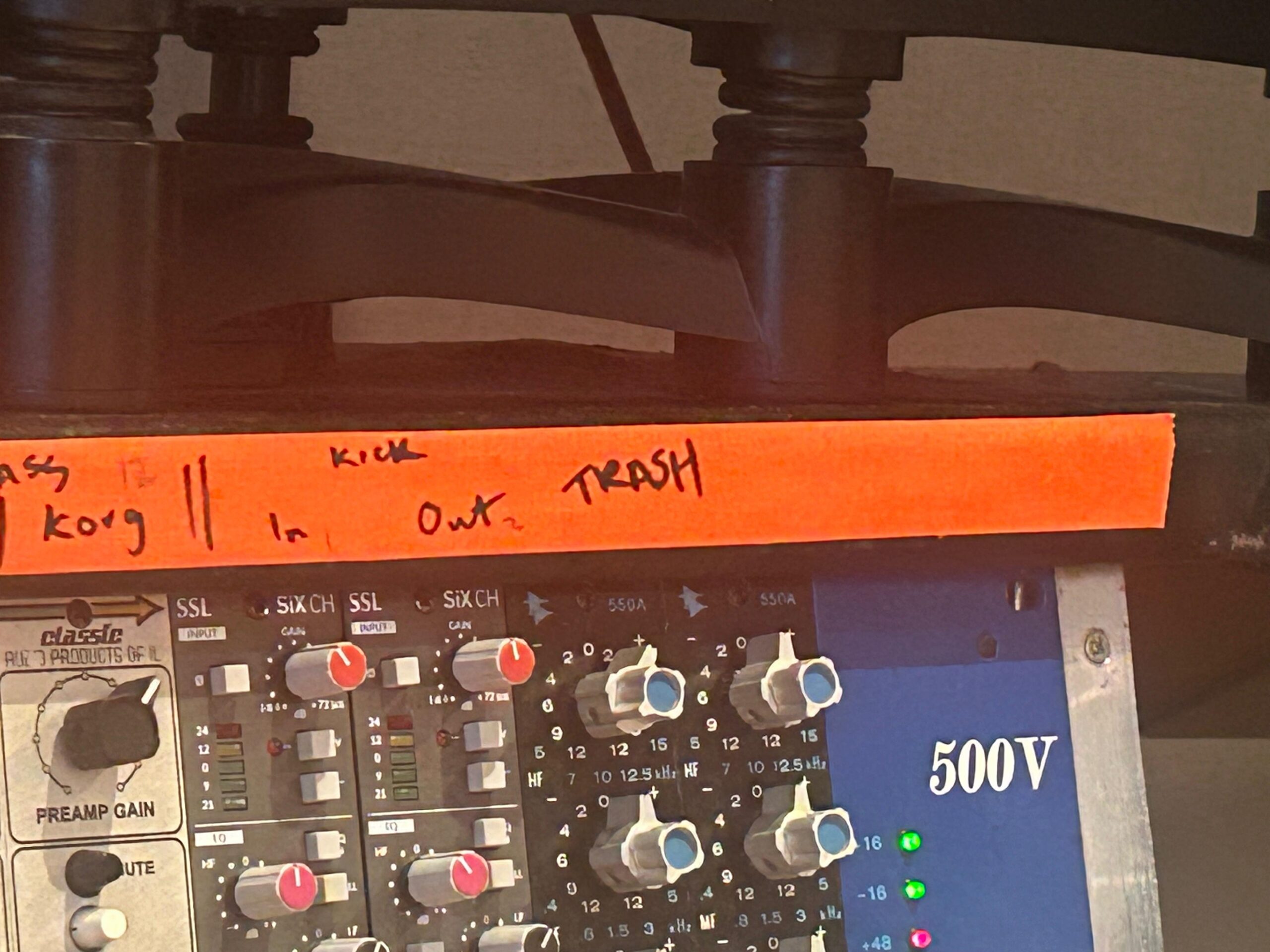
ROWSELL: I saw some old TikTok with Chappell Roan that she’s since deleted. She was like, “The biggest myth in music is that you spend all your time making music, and actually, you spend 10% of your time making music, and 90% of your time figuring out how to market it,” or something. And I was like, “Oh, yeah.” I think when I’m in album mode, I find it really hard to write. So yeah, I guess that’s a kind of writer’s block. When I see some of the guys or whatever making music on tour and stuff I’m like, “Fuck, I don’t know how you do that.”
MORRIS: Yeah, I can’t do that. I can’t be in motion. When I’m writing, I need to be hunkered down somewhere and sat in a room so I can churn it out. I can’t be whimsical, on the fly.
ROWSELL: What does writing look like for you? I know you guys write together sometimes, right? But what does it look like for you, personally?
MORRIS: Well, at the moment I’m experimenting with trying to make sounds on Logic. And I’m getting into the splice and doing horrible things with drum beats. But normally, if I’m not on tour, I’ll just sit at a piano. The main thing that happens is, I’ll be slowly compiling lyrics on my phone, because I have loads and loads of notes. And then once I feel like it’s full, I’ll sit down at a piano, and then the melody will start coming, and I’ll kind of fit the words inside. And that’s my usual way of putting the puzzle together.

ROWSELL: With piano, did you learn it like, properly? Did you have lessons and stuff?
MORRIS: No, not at all. I just started playing when I was 13, because I had a friend and she wanted to sing “Stay” by Rihanna for the talent show.
ROWSELL: Oh, nice.
MORRIS: So Rihanna was my gateway into music. And then it was like a lightning bolt of, “Oh my god, I have this instrument that I can make beautiful sounds with, and use it in that way.” What about you? How do you write?
ROWSELL: Kind of similar, to be honest. More recently, I’ve been using my voice memos as well. Instead of being like, “Oh, shit, I need to get to a guitar,” or, “I need to get to the piano, maybe I don’t. Maybe it’s better, or it’s interesting to write a song just through the top line.” Which I’ve not done a lot of. I think this time around, I was really trying to make sure that I wasn’t spending too much on the computer.
MORRIS: Yeah.
ROWSELL: Do you have any performances that you’ve witnessed that were quite informative to you, or that stick out to you, or even changed you somehow? You’re a great performer, by the way. I love it.
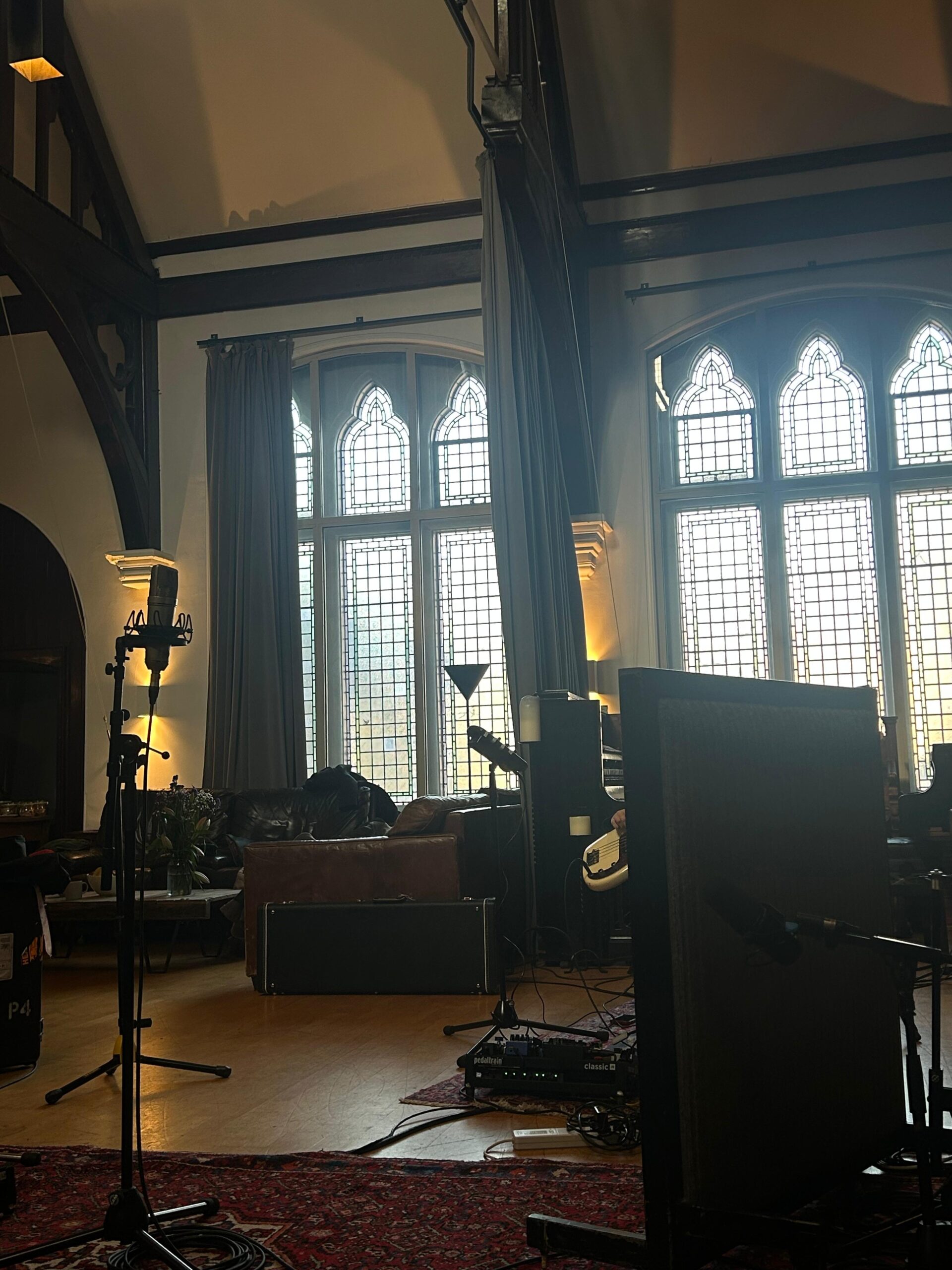
MORRIS: Oh, thank you. So are you. It’s [Lady] Gaga.
ROWSELL: Oh, wow.
MORRIS: I saw her when I was 10, at The Monster Ball. It was the first show I ever saw and the first artist I became really obsessed with on my own, that wasn’t something my parents had given me. She was one of the first artists I heard because I watched MTV and I saw the music video. So I went to see her and that was a real kind of eureka moment of me knowing for sure what I wanted to do with my life.
ROWSELL: Oh, really? My Gaga day hasn’t arrived yet. I need to get into it. I don’t know where to start. Do you know what I mean?
MORRIS: Yeah. I think that Artpop deserves a re-reckoning in the culture. Because I think it got really passed over when it came out in 2013. So go look at that one.
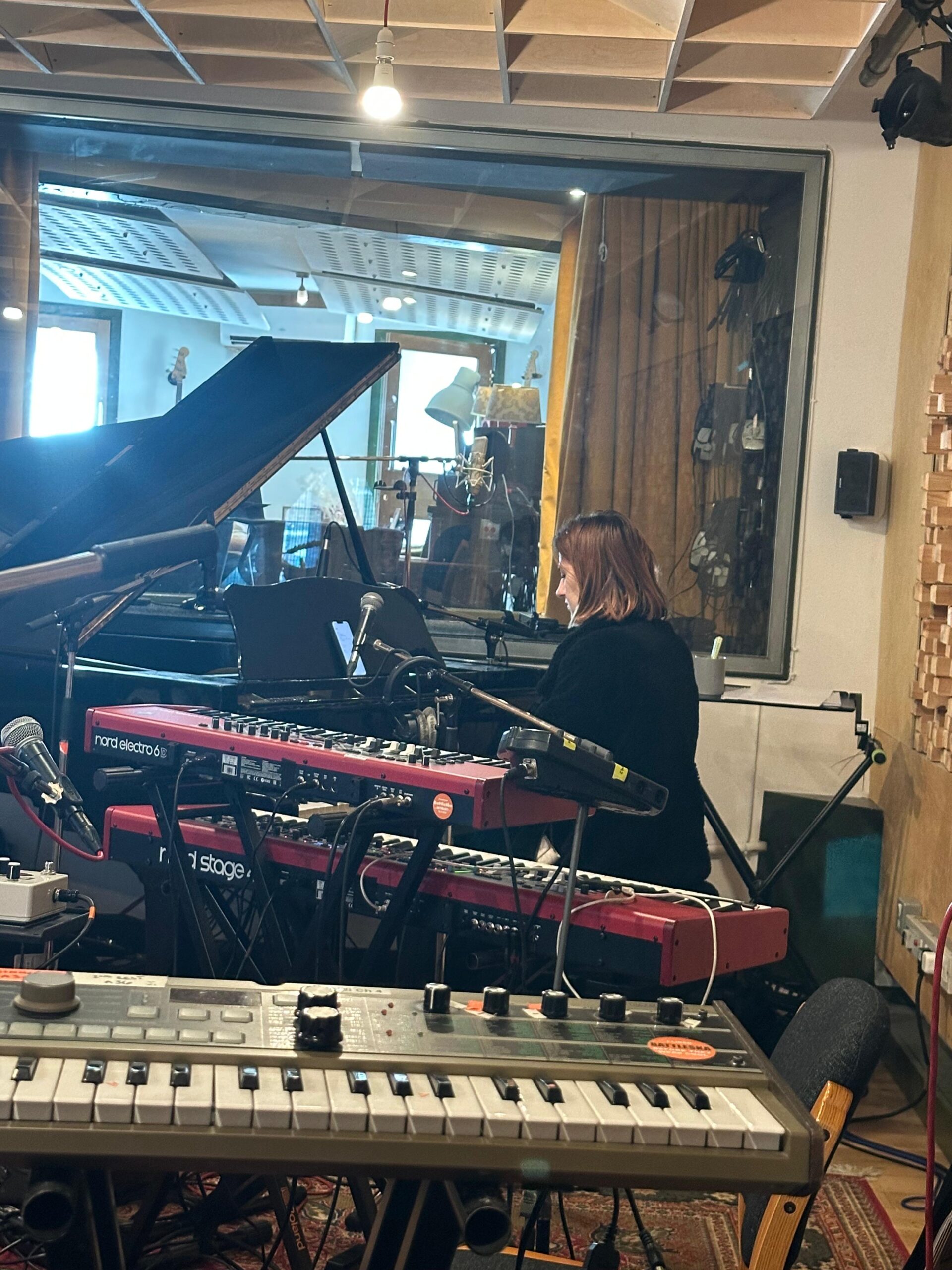
ROWSELL: And what about recently? When I’m doing interviews or something and people ask me questions about music, my answers have been my answers since I was a teenager. I’m trying to not think of stuff in recent time because if one of your favorite albums came out this year or something, you feel like, “Fuck, surely it can’t be.” I’m trying to acknowledge that brilliant stuff is happening now because when you’re informed by stuff as a teenager, it’s so potent, isn’t it?
MORRIS: Mm-hmm.
ROWSELL: So yeah, what about a show or something you’ve been to in the last couple of years or something?
MORRIS: Oh my god, that is really hard, because I feel like the stuff that makes me really crazy now is stuff that makes me feel like a teenager, discovering music for the first time. The most recent one I had was, I didn’t see her live, but I found Lingua Ignota.
ROWSELL: Who is it?
MORRIS: Lingua Ignota, she’s incredible. I don’t even know how to describe her music properly. It’s really harrowing in the most beautiful way. It’s so painful, but so beautiful. It feels like you’re in a burning house. And I listened to it for the first time recently and that made me feel like I was listening to music for the first time. Performance, I don’t know. The thing is, I don’t go see music anymore. When I first moved to London when I was 18, Georgia and I specifically would go to gigs all the time. We would always be at The Windmill, or The George, or The Old Blue Last, and now I don’t go out much. Can you think, have you seen anything?
ROWSELL: Suddenly I was like, “I hope she doesn’t ask me the question back.” [Laughs] We don’t go to live shows anymore. I did go and see Cabaret at the Kit Kat Club.
MORRIS: Oh, amazing.
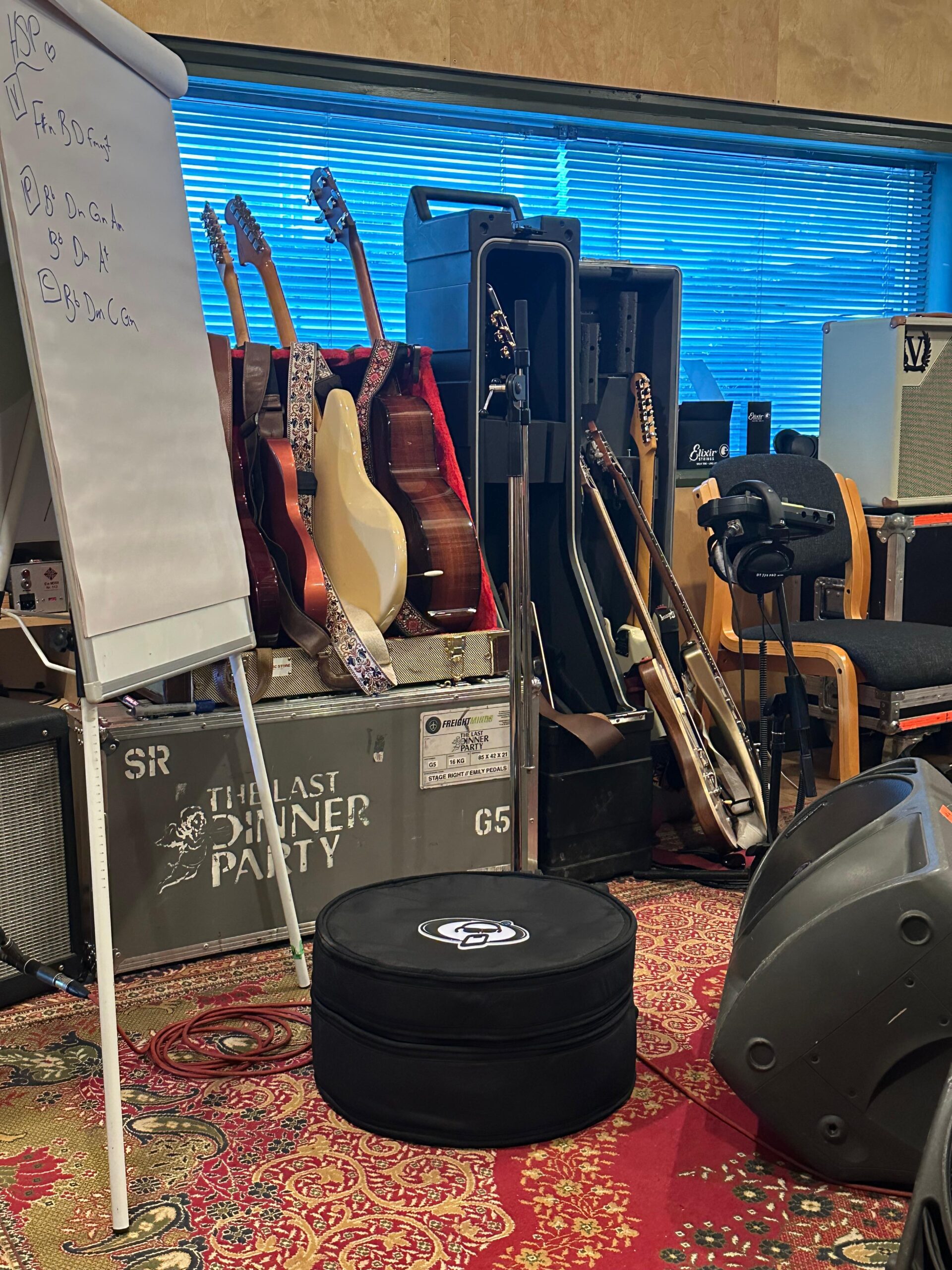
ROWSELL: Obviously it wasn’t a gig, or whatever. I was opening my mind to different ways of performing. That was an interesting moment and experience.
MORRIS: Would you ever want to be in a musical?
ROWSELL: Yes.
MORRIS: Which one?
ROWSELL: Well, I do love the songs in Cabaret. I don’t know. I like it, but maybe that’s something that I like in a private way. And you’re not an effing theater kid.
MORRIS: No, I don’t think so.
ROWSELL: But maybe that’s why it would be cool, isn’t it? Sometimes musical theater, we don’t like it because of something we’re not taking it for, because of this idea we have of it. Do you like musical theater? Because this album is quite theatrical in places.
MORRIS: Yeah. I’ve been accused of having theater kid energy more than once, and that’s fine. I accept it. I would love to be in a musical. I’m waiting for the call.
ROWSELL: Oh, really?
MORRIS: Yeah, I’m putting it out. I’m manifesting it now. I hope someone reads this and comes to me.
ROWSELL: Right. Well, maybe there needs to be a new musical that someone can write, and we can cast ourselves.
